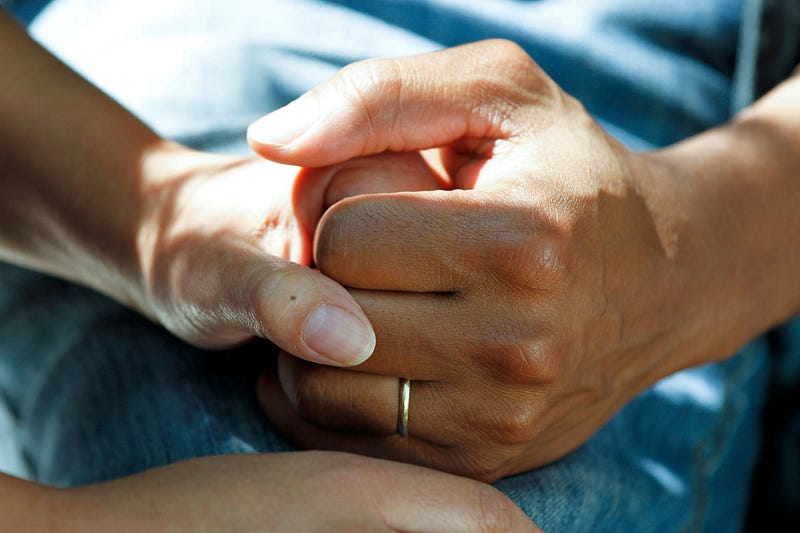Book Appointment Now
Why People Stay in Denial in An Emotionally Abusive Relationship?

Today I’d like to answer the question of why people stay in denial in an emotionally abusive relationship. You might see that the person you’re with is mean, doesn’t take responsibility, and doesn’t even support you. But you act like it’s not true or like you don’t notice it. Instead of admitting that this person is hurting you and thinking about leaving, you stay in this state of acting like everything’s okay. It’s a common theme in most emotionally abusive relationships, and that’s what makes it hard to leave those environments. Without accepting or recognizing the relationship for what it is, it becomes challenging to even look for a way out. So, why do people deny the emotional abuse in their relationships?
Familiarity
When you’re used to being treated badly or emotionally abused, you become attached to it. It feels familiar, like your comfort zone.
When you stay in a familiar environment, even if it’s unhealthy or abusive, there’s often some sort of payoff or benefit, whether you realize it or not. This could be because you’re used to it, and familiarity brings a sense of comfort, even if it’s negative.
For example, staying in an emotionally abusive relationship might mean you avoid the discomfort and uncertainty of being alone or starting over. It could also mean avoiding potential conflict with your partner or disrupting the stability of your family life. These perceived benefits, whether they’re conscious or not, can make it harder to recognize the need for change and take action to leave the emotionally abusive relationship.
As you spend more time in this environment, your tolerance for the abuse may increase, and you might even convince yourself that it’s not as bad as it seems. This can further reinforce your attachment to the familiar setting, making it even more challenging to break free from denial and seek a way out of the relationship
Hope for Change
Hope can be a wonderful thing, but it can also be like a drug that keeps you stuck in denial. It’s common in relationships. You always hope that your partner will change if they exhibit some undesirable behaviour, like maybe they’re just stressed from work. You keep hoping that things will improve. You might even think that having another child will make them change, or that they’re just going through a rough patch. This hope keeps you in denial. Even if it’s been years and they haven’t changed, you keep believing things will get better.
Self-Esteem
When you don’t think much of yourself, you end up in situations that match how you feel. If you believe you’re not worthy of good treatment or a healthy relationship, you might find yourself in a toxic one. It’s like you’re stuck in a loop that says, “This is where I belong.” So, you might not even realize or admit how bad it is because you don’t think you deserve anything better.
Fear of Being Alone
Another reason is the fear of being alone. If you’ve never really stood up for yourself or learned how to be independent, you might feel like you always need someone by your side. It doesn’t matter if that person is abusive; as long as you’re not alone, you choose to ignore the problems or the emotional abuse they’re subjecting your through. When you’re by yourself, old wounds and memories of feeling abandoned or neglected can come back, which is scary. So, instead of facing that fear, you act as if everything is okay, even if it’s not.
Embarrassment
Another reason is feeling embarrassed. Sometimes, even though a relationship is emotionally abusive, it may seem perfect to everyone else. People might admire it and think it’s great. If you’ve painted a picture of a happy relationship to your family, friends, and coworkers, it’s hard to admit that it’s not true. You’re scared of what people will say and how they’ll judge you. You want to fit in and seem like you’re in a happy relationship, so you ignore the emotional abuse. This fear of telling the truth comes from worrying about feeling ashamed or embarrassed. It might even get to a point where you can’t face your family, friends, or coworkers anymore.
Isolation
In an emotionally abusive relationship, you might lose contact with your friends and family, making you feel isolated and disconnected from the world outside. Without hearing different viewpoints or receiving support, you might continue to ignore the problems. Hearing others’ perspectives can sometimes help you see the truth. But when you’re alone, it’s easier to pretend everything’s fine. Connecting with others can also open your eyes to what you’re missing out on because you’re stuck in this abusive relationship.
There are many reasons why you may stay in denial. Without breaking free from this denial, it can be challenging to move on or seek alternatives. Denial convinces you, consciously or unconsciously, that things are okay or will be okay in the relationship. This mindset leads you to take measures to stay in the relationship, even if it means hurting yourself or lowering your boundaries for the sake of the other person. It’s crucial to acknowledge the situation, even if you don’t have all the answers or resources to move forward. Acceptance is the first step towards liberation from denial. Once you accept the reality of the situation, you can start seeking help and exploring options for a healthier and happier life.
Note from the Author
If you’re ready and you’d like my help with healing, finding peace in life and breaking free from these toxic patterns, then you can book a FREE BREAKTHROUGH CALL with me HERE. Happy healing 💙💙. Feel free to share and comment! Use this information with caution, it comes from my own thoughts & bias, experiences and research😊.






